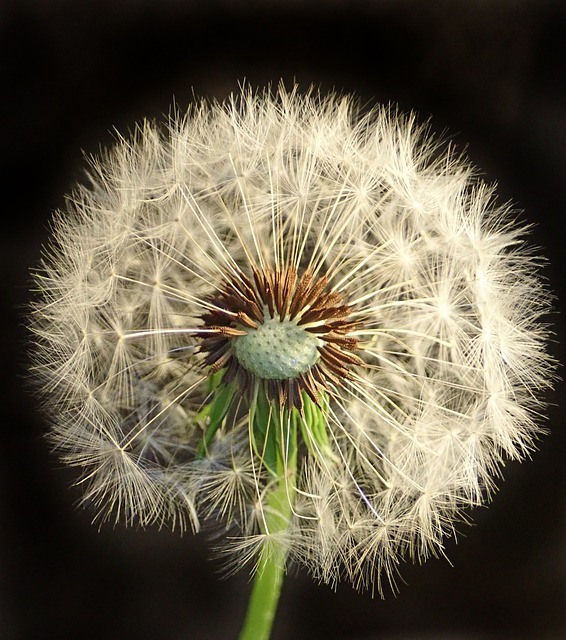The THCA flower, a non-psychoactive component of the cannabis plant, has garnered attention for its robust antioxidant properties. It stands out as a natural health ally with a strong profile of antioxidants, including THCA and CBDA, which work synergistically to combat oxidative stress caused by free radicals. These antioxidants are under scientific scrutiny for their potential to safeguard against harmful reactive oxygen species (ROS) and support the body's defense mechanisms, contributing to overall cellular health and well-being. The THCA flower's antioxidant efficacy is believed to be comparable to that of vitamin C and E, and it may offer therapeutic benefits for various inflammatory and oxidative conditions due to its anti-inflammatory properties. Additionally, the presence of terpenes and flavonoids further enhances its health-promoting effects. Incorporating the THCA flower into a wellness routine can provide a natural means to potentially manage chronic diseases and support the endocannabinoid system, making it an emerging area of interest for therapeutic applications with promising antioxidant benefits.
Discover the transformative potential of THCA flower, a botanical treasure trove brimming with powerful antioxidants. This article delves into the health-promoting benefits of THCA flower, shedding light on its scientifically proven antioxidant properties and how they can enhance your wellness regimen. Explore the rich tapestry of advantages associated with this natural compound, from its protective effects against oxidative stress to its potential role in supporting overall health. Join us as we navigate the therapeutic landscape of THCA flower and its place in a balanced lifestyle.
- Unveiling THCA Flower: A Natural Source of Antioxidants
- The Science Behind THCA Flower's Antioxidant Properties
- Potential Health Benefits of Consuming THCA Flower
- Incorporating THCA Flower into Your Wellness Routine
Unveiling THCA Flower: A Natural Source of Antioxidants

Unveiling the THCA flower reveals a natural treasure trove of antioxidants, a class of compounds well-known for their protective roles within the human body. These antioxidant properties are not merely a byproduct but are integral to the plant’s biological functions and its potential health benefits. The THCA flower, which contains tetrahydrocannabinolic acid (THCA), a non-psychoactive precursor to THC, has garnered attention for its rich antioxidant content. Research indicates that THCA flower possesses a broad spectrum of antioxidants, including cannabidiolic acid (CBDA) and other cannabinoid acids, which work synergistically to combat oxidative stress. This natural source has the potential to counteract the damaging effects of free radicals, thereby supporting overall health and well-being. The antioxidant activities of THCA flower are a subject of ongoing scientific investigation, with studies focusing on its ability to protect against cellular damage caused by reactive oxygen species (ROS). As such, incorporating THCA flower into one’s wellness regimen may offer a natural defense against oxidative stress and contribute to the maintenance of cellular integrity.
The Science Behind THCA Flower's Antioxidant Properties

The therapeutic potential of THCA flower, a non-psychoactive form of cannabis, has garnered significant attention due to its antioxidant properties. Scientific research indicates that THCA possesses a robust capacity to neutralize free radicals, which are unstable molecules that can cause oxidative stress and contribute to various diseases and aging processes. The antioxidant activity of THCA is attributed to its unique molecular structure, which includes a pentyl ring attached to a phenolic group. This structure allows THCA to scavenge reactive oxygen species more effectively than some synthetic antioxidants. In studies, THCA has demonstrated the ability to protect cells against oxidative damage, suggesting a potential role in preventing or mitigating conditions associated with oxidative stress, such as neurodegenerative diseases and inflammatory disorders. The presence of these antioxidant properties in THCA flower makes it a subject of interest for researchers exploring natural compounds that can promote health and protect against the harmful effects of environmental toxins and metabolic waste products. The efficacy of THCA as an antioxidant is supported by both in vitro and preclinical evidence, paving the way for further investigation into its therapeutic applications.
Potential Health Benefits of Consuming THCA Flower

Consuming THCA flower, which contains the non-psychoactive cannabinoid tetrahydrocannabinolic acid (THCA), may offer a range of potential health benefits due to its antioxidant properties. THCA is the precursor to THC (tetrahydrocannabinol) and has been found to possess therapeutic attributes without the psychoactive effects typically associated with THC. Research indicates that THCA interacts with the body’s endocannabinoid system, which plays a significant role in regulating various physiological processes. The antioxidant properties of THCA are particularly noteworthy; they may help neutralize harmful oxidative stress within the body, potentially protecting against cellular damage and supporting overall health. This antioxidant action is comparable to other well-known compounds like vitamin C and E, further emphasizing its potential benefits for health maintenance and disease prevention.
Furthermore, THCA flower has shown promise in inflammation reduction, which is a common concern across various medical conditions. Its anti-inflammatory properties may help alleviate symptoms associated with chronic inflammation, such as those found in arthritis or inflammatory bowel disease. The potential for THCA to modulate immune responses and reduce inflammation makes it a subject of ongoing research for its role in treating autoimmune disorders. Additionally, the presence of other beneficial compounds like terpenes and flavonoids within the THCA flower enhances its therapeutic effects, suggesting a holistic approach to health and well-being through cannabinoid therapy. As such, incorporating THCA flower into one’s regimen may offer a natural alternative for managing various inflammatory and oxidative conditions.
Incorporating THCA Flower into Your Wellness Routine

Incorporating THCA Flower into Your Wellness Routine can be a thoughtful addition for those seeking to harness its potential health benefits. Rich in non-psychoactive cannabinoids like Tetrahydrocannabinolic Acid A (THCAC), the THCA Flower is celebrated for its antioxidant properties. These properties are believed to combat oxidative stress, a condition linked to various chronic diseases and premature aging. The antioxidants present in THCA Flowers, including cannabidiol (CBD) and other rare cannabinoids, work synergistically to neutralize free radicals that can damage cells and tissues. By integrating this natural substance into your wellness regimen, you may support your body’s defense mechanisms against environmental toxins and the natural aging process. Moreover, the THCA Flower is often praised for its potential role in promoting homeostasis within the endocannabinoid system, which plays a crucial part in maintaining balance across various bodily functions. This makes it a versatile choice for individuals looking to complement their wellness routine with a natural and plant-based approach. Users can explore different consumption methods such as vaporization or infusion into edibles to tailor the experience to their preferences while enjoying the potential health benefits of this cannabinoid-rich flower.
In conclusion, the exploration of THCA flower as a natural source of antioxidants reveals its promising potential in supporting health and wellness. The scientific evidence underscores the role of THCA’s antioxidant properties in combating oxidative stress and promoting cellular health. As an addition to one’s wellness routine, incorporating THCA flower may offer a range of benefits, from bolstering immune function to maintaining overall vitality. Future studies are warranted to further elucidate these effects and establish optimal usage guidelines. Nonetheless, the current body of research provides a compelling case for considering THCA flower as a valuable wellness ally, especially for those interested in harnessing the benefits of antioxidants naturally.
